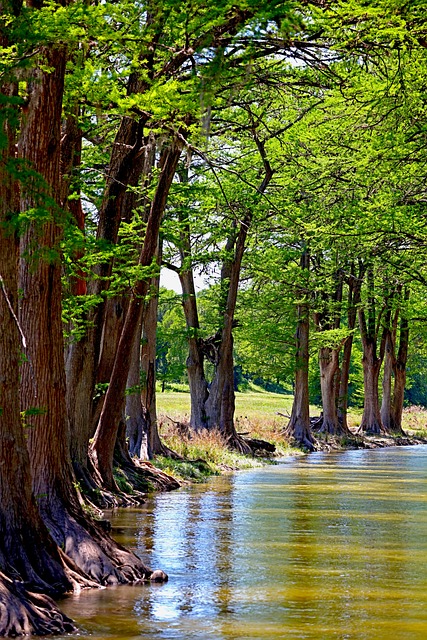Texas is a state of profound cultural depth and economic significance. It's a land where indigenous history, Spanish exploration, the Texas Revolution, Civil War involvement, and oil booms have all shaped its character. The state's diverse music and culinary scenes are a reflection of its rich cultural legacy. Geographically, Texas offers a wide array of ecosystems, from the lush Piney Woods to the arid Chihuahuan Desert, including the Guadalupe Mountains. Economically, Texas is the second-largest state by GDP, with a diversified economy that includes energy, agriculture, technology, aerospace, and manufacturing, centered around a pro-business environment with low taxes and minimal regulations. The Texas Medical Center exemplifies the state's excellence in healthcare and research. Its infrastructure, education system, and commitment to innovation drive its role as an economic powerhouse within the United States.
discovery of Texas reveals a tapestry rich in history, culture, and natural splendor. As the second-largest state in the U.S., Texas boasts a diverse array of landscapes, from the lush Piney Woods to the expansive Chihuahuan Desert. Known for its economic prowess, Texas is an economic powerhouse with significant political influence on both national and global stages. The state’s cultural melting pot showcases a vibrant arts scene and a culinary tradition that offers a taste of history in every bite. Iconic symbols like the Texas State Flag and the Alamo stand as testaments to the Lone Star State’s storied past. From the oil that fueled its early economy to the tech innovations of Silicon Hills, Texas continues to lead in industries shaping the future. The state’s natural wonders, abundant wildlife, and unique geological formations offer a glimpse into Earth’s untamed beauty. Join us as we delve into the many facets that make Texas an intriguing subject of study and admiration.
- The Lone Star State: A Brief Overview of Texas's Rich History and Culture
- Geographical Diversity: Exploring Texas's Vast Landscapes from the Piney Woods to the Chihuahuan Desert
- Economic Powerhouse: Understanding Texas's Role as a Leading Economy in the U.S.
The Lone Star State: A Brief Overview of Texas's Rich History and Culture

Texas, known as the Lone Star State, offers a mosaic of history and culture that is as diverse as its landscapes. Stretching across the southern region of the United States, Texas has a past deeply interwoven with the broader narrative of American history, yet it possesses a unique identity all its own. The state’s name itself, Tejas, derived from the Hasinai tribe, reflects its indigenous roots, which predate the arrival of Spanish explorers in the 16th century. Over time, Texas became a crossroads for various cultures, including Native American, Spanish, Mexican, and Anglo-American influences, each leaving an indelible mark on the region’s character.
The rich tapestry of Texas’s history is marked by significant events such as the Texas Revolution, which led to its independence from Mexico in 1836, and later its annexation by the United States in 1845. The state played a pivotal role in the Civil War, the oil boom of the early 20th century, and has been instrumental in shaping both the economic and political landscapes of America. Culturally, Texas boasts a vibrant heritage that is celebrated through its music, cuisine, and festivals. From the blues of the East Texas Piney Woods to the Tex-Mex border sounds, from the smoky barbecue of Central Texas to the Gulf Coast’s seafood delicacies, Texas’s culture is a testament to its storied past and the melting pot of influences that continue to shape its present. Today, Texas stands as a symbol of American innovation, resilience, and diversity, embodying the spirit of exploration and independence that has defined its legacy since time immemorial.
Geographical Diversity: Exploring Texas's Vast Landscapes from the Piney Woods to the Chihuahuan Desert

Texas boasts a geographical diversity that spans across its expansive borders, showcasing a variety of landscapes that captivate both residents and visitors alike. The state’s eastern region is marked by the dense, verdant Piney Woods, where towering trees and rich soils create an environment conducive to diverse wildlife and a thriving timber industry. As one ventures westward, the terrain transitions into the rolling hills of the Edwards Plateau, offering a different palette of natural beauty that includes rugged canyons and unique flora and fauna. Further west lies the Trans-Pecos region, where the Chihuahuan Desert reigns supreme. This arid expanse is characterized by stark yet breathtaking landscapes, including towering mountains such as the Guadalupe Mountains, and vast open spaces that stretch to the horizon. The contrast between these ecosystems within Texas’s borders is a testament to the state’s rich natural heritage and provides a myriad of opportunities for exploration and adventure, from the cool, shaded forests to the sun-baked deserts.
Economic Powerhouse: Understanding Texas's Role as a Leading Economy in the U.S.

Texas’s economy is a multifaceted powerhouse, contributing significantly to the United States’ GDP. As the second-largest economy among U.S. states, Texas boasts a diverse range of industries that drive its economic success. Energy, particularly oil and gas, has long been synonymous with the Lone Star State, accounting for a substantial portion of its economic output. However, Texas’s economic prowess extends far beyond fossil fuels; it is also a leading state in sectors such as agriculture, technology, aerospace, and manufacturing. The Texas Medical Center in Houston stands as the world’s largest concentration of healthcare and research institutions, further diversifying the state’s economic landscape. Texas’s business-friendly environment, low tax burden, and minimal regulation create an attractive setting for both established corporations and emerging startups, fostering innovation and entrepreneurial growth. As a result, Texas’s economic impact is undeniable, with its contributions to national productivity and job creation positioning it as a cornerstone of the American economy. The state’s continuous investment in infrastructure, education, and technology ensures that it remains at the forefront of economic development within the United States.
Texas, a state steeped in history and diversity, stands as an economic powerhouse and a testament to the United States’ vast potential. Its rich cultural tapestry, reflected across its varied landscapes from the lush Piney Woods to the expansive Chihuahuan Desert, underscores the Lone Star State’s unique position within the nation. As this article has explored, Texas is not just a place of interest but a significant contributor to the U.S. economy, showcasing its influence and resilience in various sectors. The state’s multifaceted nature, from its historical significance to its economic clout, offers a compelling narrative that continues to unfold.



